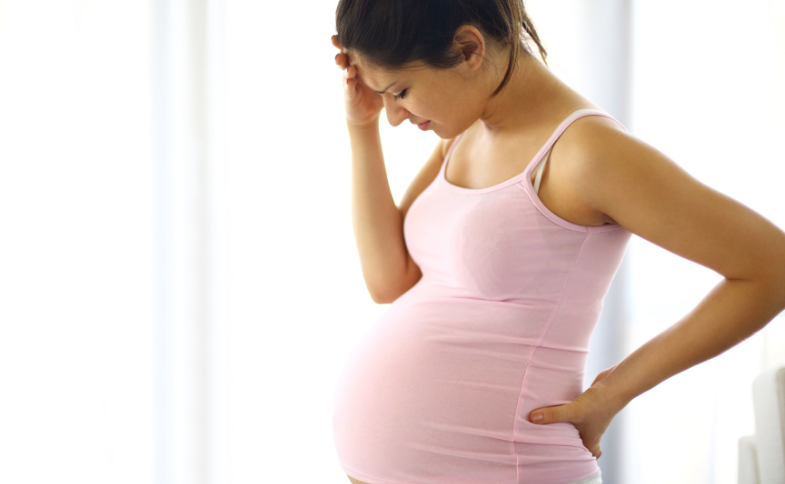How to Deal with Sore Breasts During Pregnancy

Sore breasts and nipples are among the earliest signs of pregnancy. Sometimes, they occur even before you notice that you have missed your period. While soreness in the breasts and nipples sometimes also happens as part of your cycle, the discomfort will usually be much more intense during pregnancy.
If your breasts have recently become quite sore because of your pregnancy, you are not alone. This is a symptom that most women have to deal with especially early on in their pregnancies. Don’t know what to do about it? You have come to the right place! This guide will help you figure out how to deal with sore breasts during pregnancy.
Causes of breast soreness in pregnancy
The pregnancy hormones estrogen and progesterone are responsible for breast changes, soreness, and discomfort. Other causes include the accumulation of fat, tissue, and milk glands in your breasts, as well as increased blood supply to the area. All of these changes happen to help your breasts prepare for nursing in a few months.
Nipple pain is also common because the same hormones that cause breast tenderness also make these regions more sensitive to touch.
And as you approach the end of your third trimester, your body goes into overdrive to prepare for your baby’s impending birth. Because colostrum production is starting, you may experience breast soreness and tenderness again at this stage.
What does it feel like to have breast pain during pregnancy?
When you have pain in your breasts, they may feel heavy, full, and tingly. Keep in mind that just like any other pregnancy symptoms, the effects will differ from woman to woman. This means some women will be less troubled by it than others.
For some moms-to-be, breast pain presents itself as a dull aching, soreness, heaviness, fullness, or tenderness that can be brushed off. Others experience severe, shooting pain in the breast tissue.

Other breast changes that occur in pregnancy
Apart from breast soreness, you’ll probably experience a few additional breast changes during pregnancy, including:
- Changes in the nipples. Along with achiness and tingling, your nipples may protrude and feel more tender than normal
- Changes in your areolas. If you’re like most women, your areola will darken, grow larger, and potentially get speckled – a trend that will continue over several months. Your areola will also have Montgomery’s tubercles, which are little goosebumps that are oil glands that provide lubrication to the region
- Visible veins. A network of blue veins just beneath the skin’s surface may also be visible, carrying nutrients and fluids from mother to baby. The degree of visibility is determined by your genes, the size of your breasts, and whether or not you’ve undergone augmentation surgery
- Discharge. Your breasts may also leak. This is completely normal. The discharge may be thin and watery, or it may appear thick and sticky, which is what colostrum looks like.
How to deal with breast soreness in pregnancy
Here are a few methods you can use to deal with breast soreness during pregnancy. If these approaches do not provide you with relief, consult your doctor.
- Buy a new bra
Wear a breastfeeding bra that is comfortable. This is a must-have maternity essential. Look for wire-free, unpadded versions with no hooks or snaps. If possible, get something comfortable to wear at night as well. Position adjustments while sleeping might irritate sensitive nipples or aggravate uncomfortable breasts.
When your breasts expand during pregnancy, a flimsy, fragile underwire bra will not work. Any bra you wear needs to provide adequate support. Also, keep an eye on how your bra fits as your pregnancy progresses. You may have to move one or two sizes up within that period.
- Minimize skin contact
Try not to let anything come into contact with your breasts unnecessarily. For example, you can adjust your seatbelt to go between your breasts instead of over them or switch to a backpack instead of a crossbody bag.
Does having your breasts stroked during sex make you uncomfortable? Do not hesitate to express your feelings to your partner. A candid discussion might help to avoid misunderstandings and broken feelings if your spouse accidentally irritates a sensitive area.
- Use breast pads
Sometimes, the inside of your bra can be the source of your discomfort. Consider putting a breast pad in each cup to protect your nipples. Breast pads will also protect your clothes from leaks when you start breastfeeding.
- Try wearing a sports bra
Consider switching up your regular bra with a sports bra. They are designed to keep your breasts close to your chest while minimizing movement. Anything you can do to avoid your breasts from bouncing or jiggling may provide comfort if this is what aggravates their tenderness.
- Sleep in your bra
Wearing a bra to bed reduces movement and keeps your fragile nipples from scratching against your nightgown or bedsheets. There are sleeping bras available, but you may also wear your normal nursing bra to bed.
- Watch the water pressure when you shower
Sensitive nipples can be so uncomfortable that the sensation of the water spraying from the shower hurts. A cold or warm shower can help ease this discomfort as long as you are aware of the water pressure. Use the gentle setting of your shower head if it has one. Otherwise, try to deflect the flow of water to stop it from directly hitting your chest when you are facing it.

Other ways to reduce the discomfort that comes with sore breasts
- Talk about it with your partner. Make sure your partner is aware of the issue and proceeds with caution when interacting with you. Let them know what is ok to touch, and how.
- Use cold compresses. Cold packs on your breasts might help reduce pain. Wrap an ice pack in a washcloth or a bag of frozen peas and carrots in a dish towel to protect your skin.
- Dress comfortably. Overly tight tops, like an ill-fitting bra, might squeeze your breasts, causing pain. Loose, flowing blouses and extra-large shirts are exactly what you need.
- Ask your doctor about over-the-counter relief. If none of these home remedies work, you may need to use a stronger painkiller.
Final Thoughts
Breast soreness and tenderness are frequent in the first trimester, although they tend to subside in the second and third trimesters. When lactation begins and your breasts change from generating colostrum to producing more mature milk for your infant, discomfort may return. The pain will eventually go away on its own. However, if it worsens or persists for too long, consult your doctor.